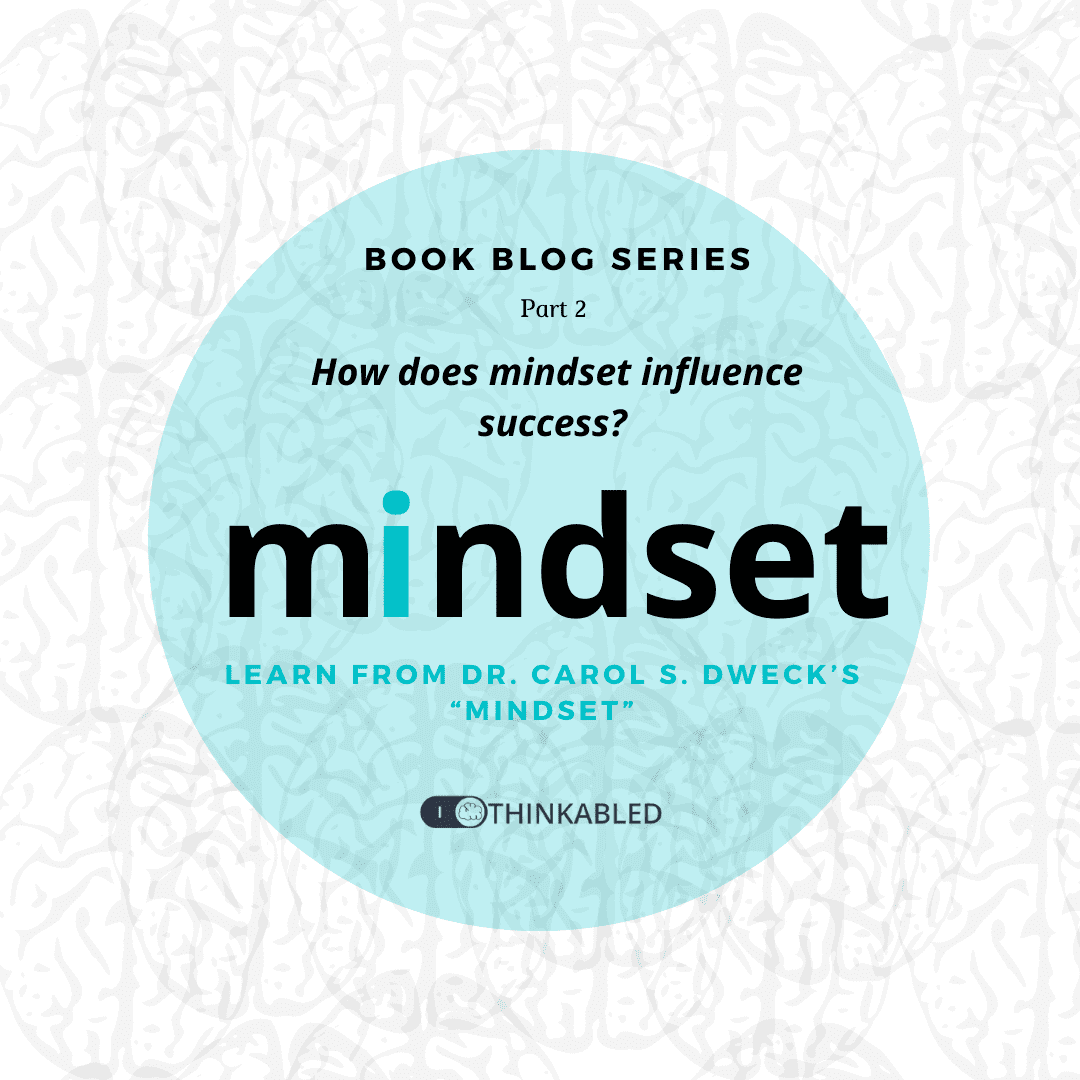
Learn from Dr. Carol S. Dweck’s “Mindset”
This is the second of a series of our insights into the lessons learnt from Dr. Carol S. Dweck’s book “Mindset”.
Introduction to “mindsets”
Why do different people cope with similar situations in remarkably different ways? Are these different mechanisms of dealing with life purely “genetic”? Or are they a summative collection of experiences, environment and expertise?
These are some of the thought-provoking questions that sparkled the curiosity out of Dr. Carol S. Dweck. After more than 20 years of research in the fields of personality, social psychology, and developmental psychology, we are glad to learn some of the profound lessons she learnt for these questions through her million-copy bestseller “Mindset”.
Who should read this blog post?
- This blogpost is suitable for all people especially students, parents, businessmen,coaches and thinkers
Success: Introduction
In our previous blog in the series, “Can I improve my “inborn skills” significantly via effort?” we learnt about mindsets and the role they play in our everyday response-to-stimulus. We learned about growth mindset, a belief that welcomes challenges, and about fixed mindset, a belief that shuns difficulties as much as possible. One of the questions that need to be dealt from our introduction is the role of mindsets in success. Let’s try to answer these fundamental questions:
Do all successful people necessarily have a growth mindset?
Is growth mindset a prerequisite for success?
To answer these questions, we need a starting point: “what is success?” Is success being the best at what you do? Do breaking records and creating new define the ultimatum of success? What is the standard that measures your success?
Try answering these questions yourselves. While these questions seem to have obvious answers, they are significant. They are a reflection of your mindset towards success.
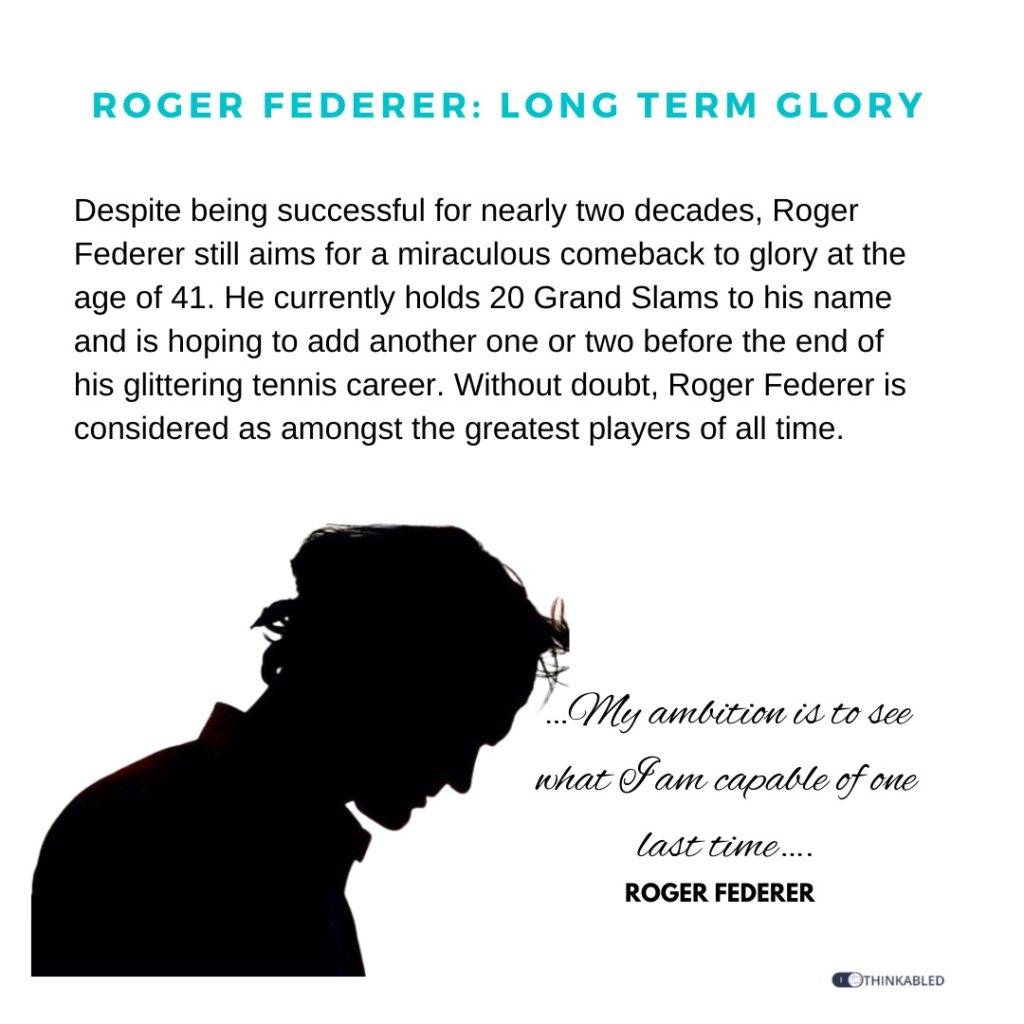
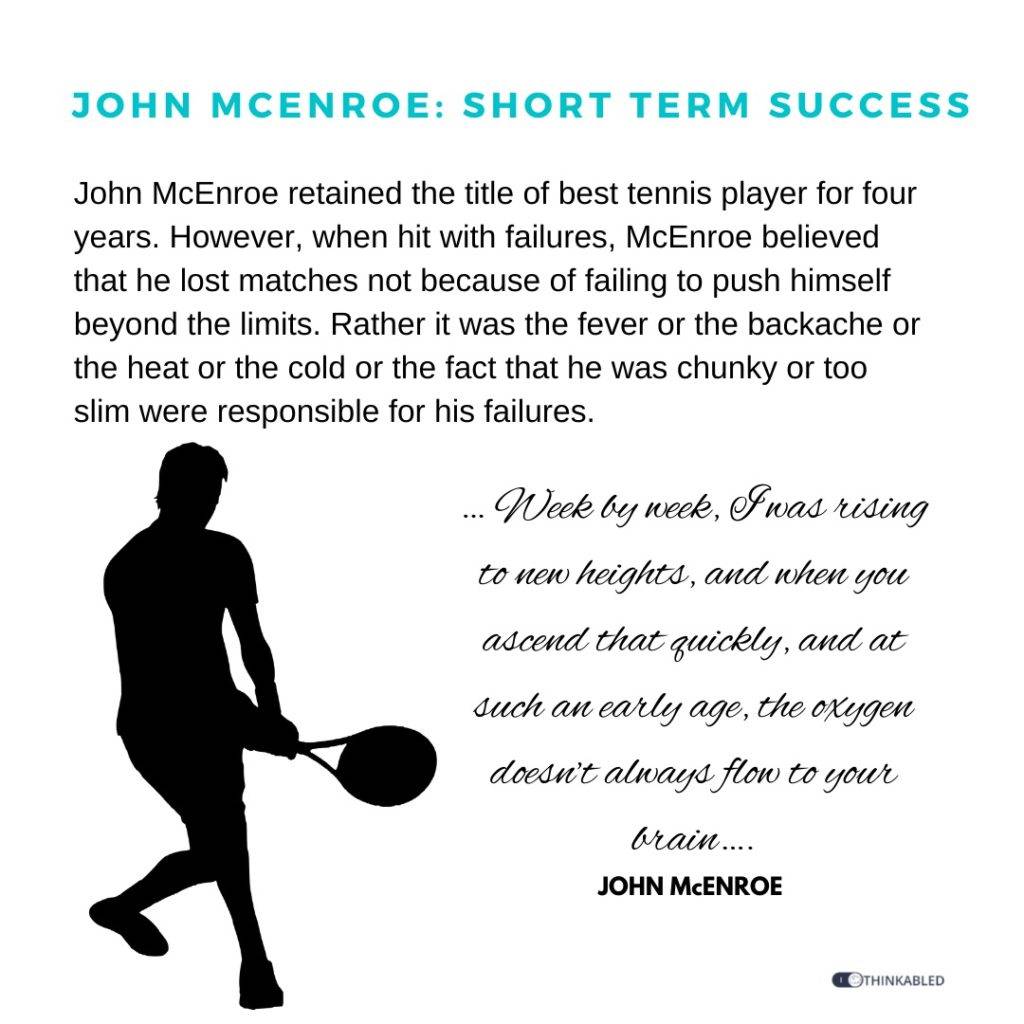
The role of mindset in viewing success
People with fixed mindset or growth mindset accept the standards or parameters that define success. No matter what you think about success, you have to accept the top performer in the test as a good standard for success. You have to accept Roger Federer, Rafael Nadal and Novak Djokovic as tennis giants worth enough to inspire everyone who holds a racquet. If it is not standards, then where do people with growth mindset and fixed mindset differ?
Well, they differ in how they view their abilities that could drive them to their notion of success. Growth mindset and fixed mindset gave rise to two different ideas about “abilities”: abilities that need to be proven and abilities that needs to be improved. It is this difference in perceiving abilities that led to differences in how people with growth mindset view success when compared to their counterparts.
Success in a world of fixed mindset is “proving your abilities” again and again. The growth mindset, however, view the “growth of your abilities” as success. Let’s dig deeper into these differing notion of successes.
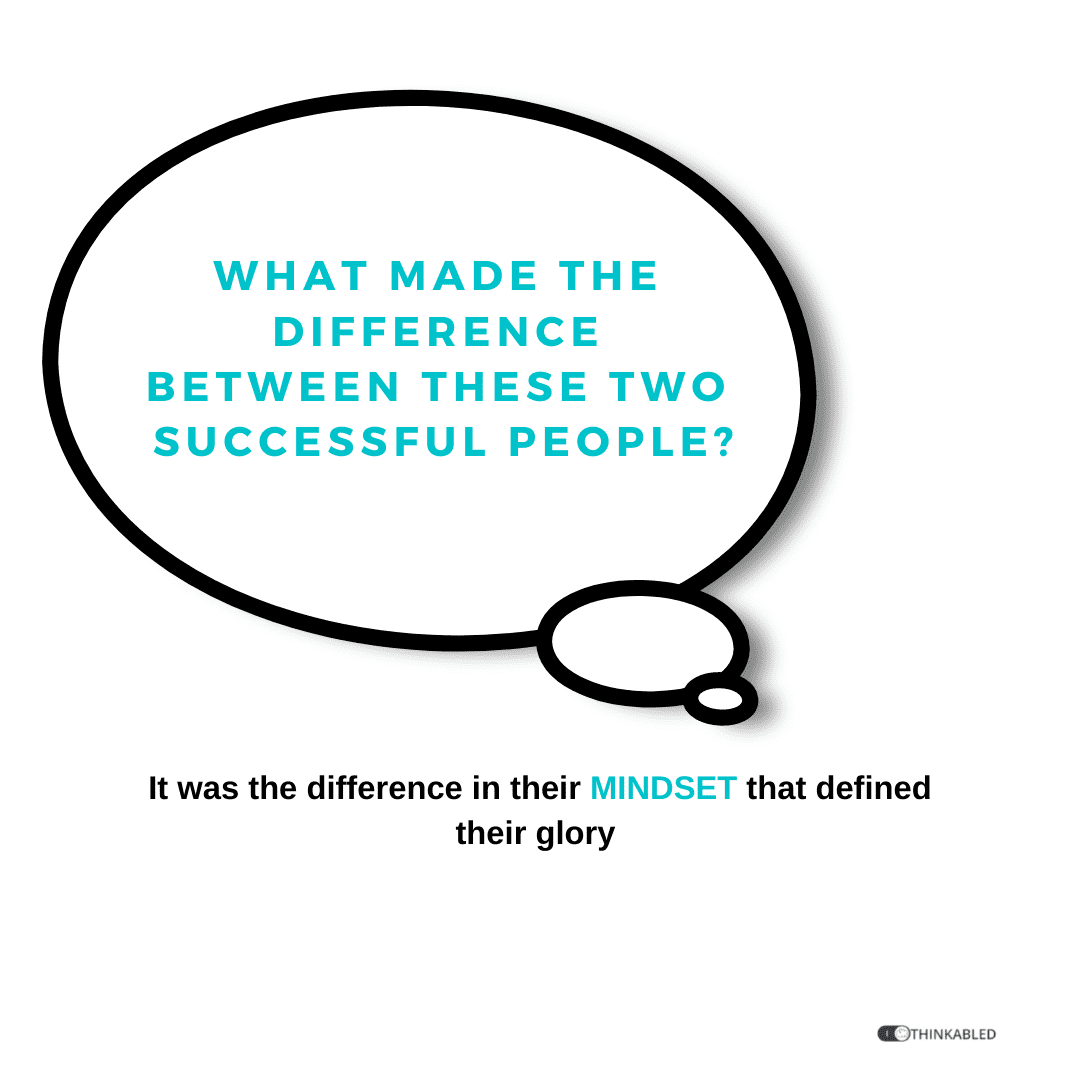
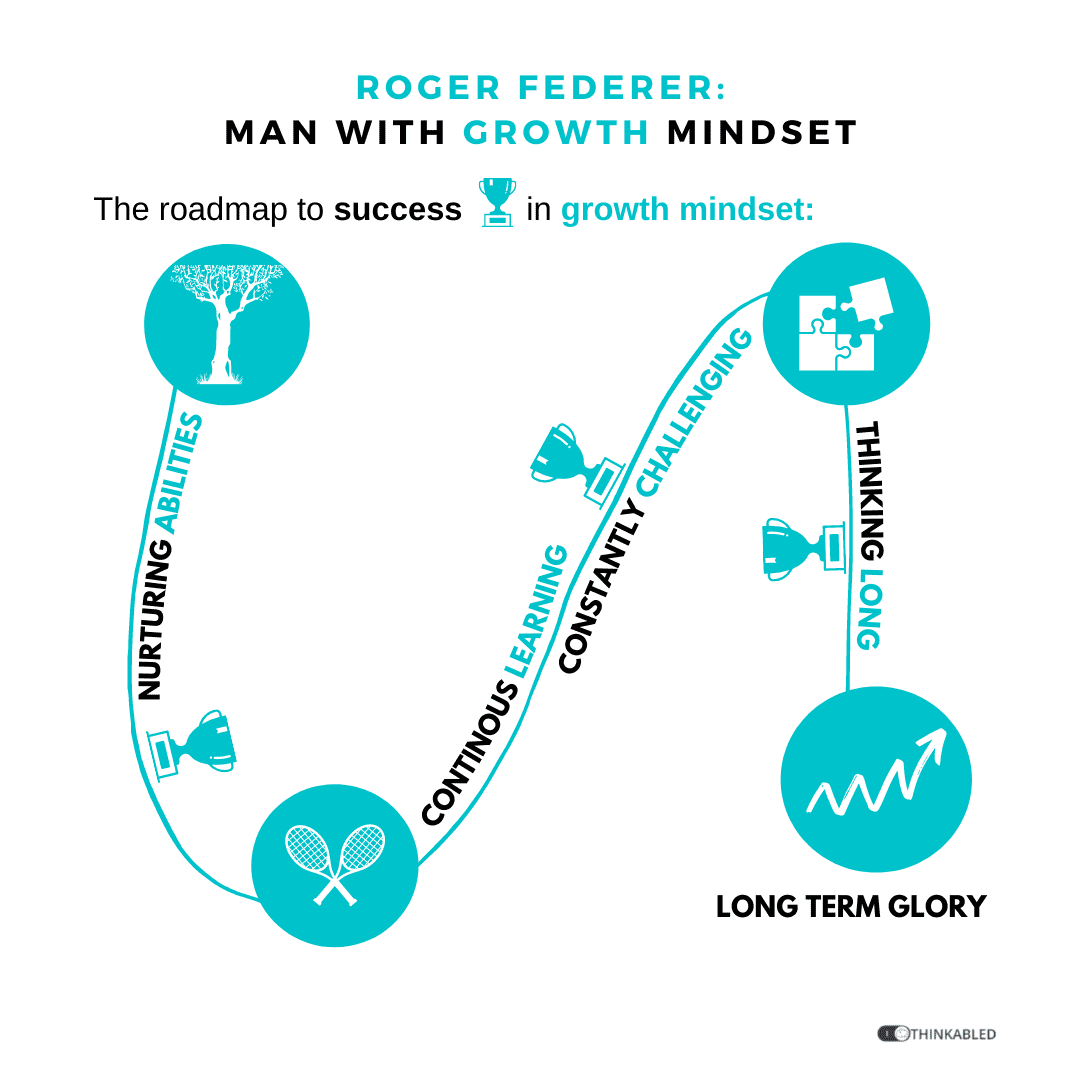
Growth Mindset : The World is divided into Learners and Non-Learners
The most important belief of people with growth mindset which sets them apart from their counterparts is their belief in “learning”. People with growth mindset see the world as learners and non-learners like the sociologist Benjamin Barber stated: “I don’t divide the world into weak and strong, or successes and failures, I divide the world into learners and non-learners. They believe that abilities are nurtured rather than being born with one. Does this mean people with growth mindset disagree with the existence of inborn talent, something that we call as “gifted”?
Absolutely no. However, growth mindset is to understand that talents are just seeds rather than the ripe fruit. It is only through learning, working hard and pushing oneself over the limits that we nurture the seed into a fully grown fruit bearing tree. This applies not just in sports or studies, rather the concept of “nurturing your abilities” extends to abilities which we think are fixed and permanent like artistic ability or intelligence.
How large of an impact does this belief in learning have on people with growth mindset? The thirst to learn and improvise pushes people with growth mindset to seek ways to achieve improvement. One of the best ways of improvising oneself is by putting one’s ability to test by challenges. Naturally, people with growth mindset thrive when challenged. Instead of whining and weeping over a failed test, growth mindset pushes you to change your learning style for betterment so as to improvise your scores on next test. Instead of giving up after a loss, Rafael Nadal works harder on his technique and forehand so as to bounce back. One of the most amazing stories about “thriving under challenges“ is of a graduate math student at Berkeley named George Dantzig.
Being late to the class, George copied down two homework problems from the blackboard. However, he realized that the questions were much more difficult than usual. It took several days for George to finally crack those questions. However, he came to know later that they were not his homework problems. Rather they were two great math problems that were never solved before.
Another consequence of belief in “nurturing your abilities” is long-term thinking. Learning is a long process, something that requires sweat, blood and time. People with growth mindset aim for the long run. They do not risk the bigger picture for short-term gains. This forces them to adopt long-term strategies. At the same time, this makes people with growth mindset motivated and hungry for more. The idea of long-term thinking is instrumental in shaping how they view success. Success is defined by how you end the game, not by where you stand now. Winning a match is good but success lies in winning the tournament. Excelling on your school test is nice but gracing on an Olympiad is more important. Success is about becoming better in time than being stuck in time.
Thinking long-term provides people with growth mindset the courage to take risks and make giant leaps. Thinking long-term also serves an another important quality: the ability to not get carried away by the present. In the world of growth mindset, everyday is a new opportunity. The present state is a transient state. It is not the final destination. In fact, there may not necessarily be a final destination. This is why people with growth mindset go on to overtake the “standards” of success. This is why they end up becoming the “standard of success” for others.
This is why Roger Federer never stopped tennis after overtaking Pete Sampras record of 14 Grand Slams (the then record of standard). He went on to win 6 others and is still playing on majors. Had success been winning 15 Grand Slams in his career, Roger would have stopped playing tennis sooner. Rather, despite more than a decade later after his historic win against Andy Roddick on Wimbledon, when asked about his comeback from current injury, Roger stated that “his ambition is to see what he is capable of one last time.” “ I also wish I could say goodbye in my own way and on a tennis court. That’s why I give my all in my rehabilitation.” This shows us how people with growth mindset think and act for long term rather than being absorbed in the glory of the present.

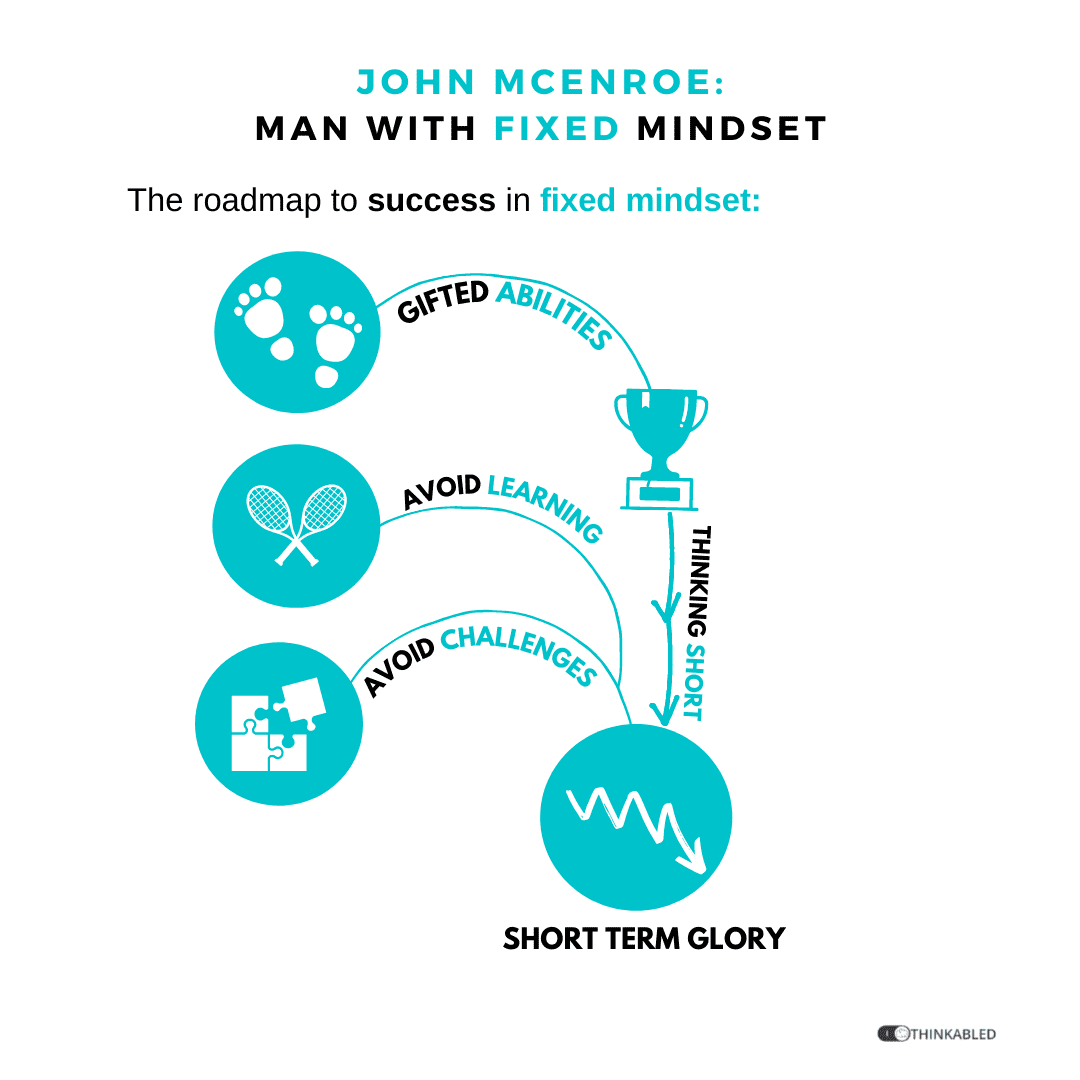
Fixed Mindset: Being is better than Becoming
While people with growth mindset focused on learning, people with fixed mindset focused on staying where they felt smart. They loved the comfort zone and the dopamine rush that “being smart and flawless” provided them. Rather than “becoming” something, success is “being” something. Rather than “becoming” a famous artist or sportsperson, people with fixed mindset prefer and idolize the “ gifted” artists and sportsperson. The idea of talent being the primary source of success rather than hardwork or will power is so central in the belief system of people with fixed mindset.
With such a type of belief, not only does learning becomes stunted, but rather learning becomes an indicator of “not being gifted” enough. If one was talented enough, they wouldn’t have to learn it. Talents are the ripe fruits formed on the tree rather than the seeds that have to be nurtured. However, one may ask whether all qualities are independent of talent or not especially the ones like artistic ability and intelligence. We have answered this question on our introduction. Even societally “fixed” abilities like artistic ability, memory or intelligence can be improved. However, it requires “learning”. At this point, a question might pop up in the heads of some of our readers:
How does people in fixed mindset reach top heights without learning?
There are a few points to understand in regards to the answer to above mentioned question. Firstly, mindsets of people can change with time. In fact, that’s the whole point of our discussion! One can change the course of their life by simply changing their mindset. This can happen to people with growth mindset as well. Secondly, a person can have a fixed mindset on one particular thing but have a growth mindset on another thing. One may believe that athletic abilities can be improved by training and hardwork but refuse to believe that hardwork makes a huge difference in our cognitive skills. Thirdly, for people with fixed mindset, success lies in being flawless rather than overcoming one’s flaws. People who are genuinely talented can achieve the standards of success even with fixed mindset.
However, such successes are transient and short-term. In fact, people with fixed mindset are more likely to chase after short-term gains that make them look flawless than focus on long-term goals. This race for seeking short-term validation retards growth, makes learning futile and boosts the ego. The whole concept of “being flawless” is itself a big ego. It causes people with fixed mindset to overvalue their success and become overwhelmed by short-term gains. Instead of focusing on Olympiad, fixed mindset celebrates the passing of a test. Instead of focusing on bigger tournaments, fixed mindset hold small victories in high esteem.
Some of our readers might be thinking: Is celebrating success bad? What’s wrong in taking pride and joy in the little victories of life? Don’t people with growth mindset celebrate their successes? Yes. People with growth mindset enjoy their successes. They take pride and joy in the hardwork and effort they put. They celebrate the results of the sweat and blood they drained. However, success in growth mindset is not an end point. The celebrations are aimed to provide motivation and confidence. They serve as checkpoints in the long journey of growth and development. Celebrations in fixed mindset, however, serves the purpose of bolstering one’s ego and establishing dominance.
The obsession with being smart and flawless in people with fixed mindsets often lead to dangerous consequences. Firstly, they resist challenges. Anything that challenges one’s smartness is a threat and must be tackled down. This is especially dangerous when adopted by people at positions of power. Secondly, one of the defence mechanisms adopted by people with fixed mindset to maintain their smartness is by devaluing the achievements of others. This helps them to boost their egos, establish their dominance and most importantly, shield their own flaws. Additionally, the idea of “flawlessness” indicates a secondary meaning: any mistake done by a successful person must not be by their fault or failure as flawlessness eradicates the possibility of being wrong. Therefore, the cause of failure must be due to others or the surroundings.
John McEnroe who retained the title of best tennis player for four years is an example of those who blame everything except themselves. McEnroe believed that he lost matches not because of failing to push himself beyond the limits. Rather it was the fever or the backache or the heat or the cold or the fact that he was chunky or too slim which were responsible for his failures.
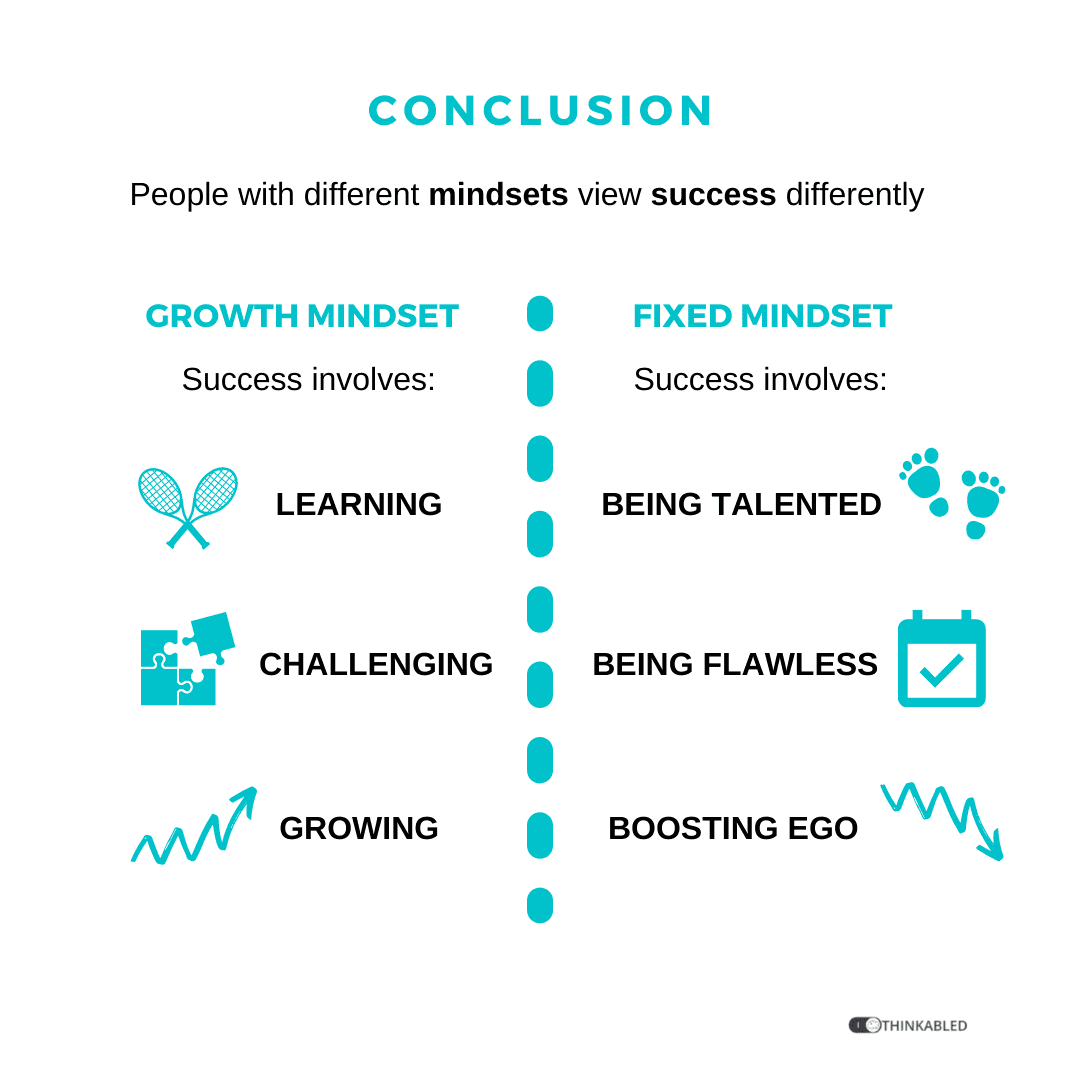
Conclusion
Let’s one comeback to our fundamental questions:
Is growth mindset a prerequisite for success?
People with growth and fixed mindset view success differently. Success in growth mindset involves learning, challenging and improvising oneself. Instead of blindly chasing the “standards” of success, growth mindset pushes onself to be a “standard”. They work for tomorrow rather than for today. On the other hand, success in fixed mindset involves proving one’s smartness, boosting their ego and being flawless. They sacrifice the long-term picture for short-term pleasures. Ultimately, people with fixed mindset fail to stand on the pedestal at top for a long time and will eventually fall.
Do all successful people necessarily have a growth mindset?
The answer is no. Gifted people with a fixed mindset can be successful in life despite their low efforts. However, such success is transient and fragile. It may not withstand the sands of time. Lee Iacocca, former head of Chrysler Motors, gives us an example of success within a fixed mindset. Despite their initial success, Chrysler failed before the enormous development of Japanese automobiles. By producing fixed models, they could not compete with the continuously growing and improving Japanese companies.
I don’t divide the world into weak and strong, or successes and failures, I divide the world into learners and non-learners.
This is the second of a series of our insights into the lessons learnt from Dr. Carol S. Dweck’s book “Mindset”. Read other articles on meta-thinking here.
Share our infographics for this series by clicking the link
